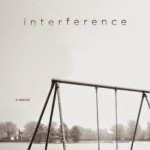Livvy Higgs is an 80 year old woman, at the end of her life, living alone in Halifax. She has befriended her neighbour Gen and her son and as time passes she finds, to her annoyance, that she becomes increasingly dependent on them.
It becomes clear to Livvy that something dangerous is going on next door that is making their world a little less secure.
 Added to this drama in The Deception of Livvy Higgs by Donna Morrissey is Livvy’s ongoing feeling of illness. As her general health declines and her distress grows, she begins to hear childhood voices, her mother in particular, calling her. As she relives several traumatic events in her childhood, we learn what has brought her to this place in her life. As Livvy slips back and forth from her past to her present, the reader is left with the distressing feeling that Livvy is slipping away from lift itself.
Added to this drama in The Deception of Livvy Higgs by Donna Morrissey is Livvy’s ongoing feeling of illness. As her general health declines and her distress grows, she begins to hear childhood voices, her mother in particular, calling her. As she relives several traumatic events in her childhood, we learn what has brought her to this place in her life. As Livvy slips back and forth from her past to her present, the reader is left with the distressing feeling that Livvy is slipping away from lift itself.
The title presents Livvy as a victim, and in some ways she was the victim of her family’s lies and deceit. She also tells her story in first person narrative, giving an intimacy to the story, while making you question whether or not her memory is reliable. Livvy’s childhood home is in Newfoundland, a setting, both in language and description, always skillfully handled by Morrissey.
 It is tempting to compare Livvy to Hagar Shipley of Margaret Laurence’s
It is tempting to compare Livvy to Hagar Shipley of Margaret Laurence’s
The Stone Angel, however Livvy inspires feelings of tenderness while Hagar left me with feelings of regret. I found The Deception of Livvy Higgs to be a particularly moving story, and might be enjoyed by readers who like the lyrical, character driven novels of Ann Patchett, author of The Magician’s Assistant.
 “A love story and a brilliant portrayal of reinvention about a magician who dies leaving his assistant/wife to discover he has lied about his past. A magician (with one memorable appearance on the Johnny Carson Show to his credit) takes the name Parsifal. He is gay. He has a Vietnamese lover, Phan. When Phan dies of AIDS, Parsifal marries the woman who has always adored him and who has lived with them both, his assistant Sabine. Then Parsifal himself dies in California, suddenly and shockingly, of an aneurysm. Parsifal always said that he had no living family and that he came from wealthy upscale Connecticut stock. The reality is very different, as Sabine learns from his lawyer. He came from a poor Nebraska family and they are very much alive. Indeed his mother and sister are on their way to California to meet Sabine, the daughter- and sister-in-law they know nothing about. It is bad that her husband has died. What Sabine must now cope with is coming to terms with his horrific past and the reason he divorced himself from his family and roots.” Discover
“A love story and a brilliant portrayal of reinvention about a magician who dies leaving his assistant/wife to discover he has lied about his past. A magician (with one memorable appearance on the Johnny Carson Show to his credit) takes the name Parsifal. He is gay. He has a Vietnamese lover, Phan. When Phan dies of AIDS, Parsifal marries the woman who has always adored him and who has lived with them both, his assistant Sabine. Then Parsifal himself dies in California, suddenly and shockingly, of an aneurysm. Parsifal always said that he had no living family and that he came from wealthy upscale Connecticut stock. The reality is very different, as Sabine learns from his lawyer. He came from a poor Nebraska family and they are very much alive. Indeed his mother and sister are on their way to California to meet Sabine, the daughter- and sister-in-law they know nothing about. It is bad that her husband has died. What Sabine must now cope with is coming to terms with his horrific past and the reason he divorced himself from his family and roots.” Discover


